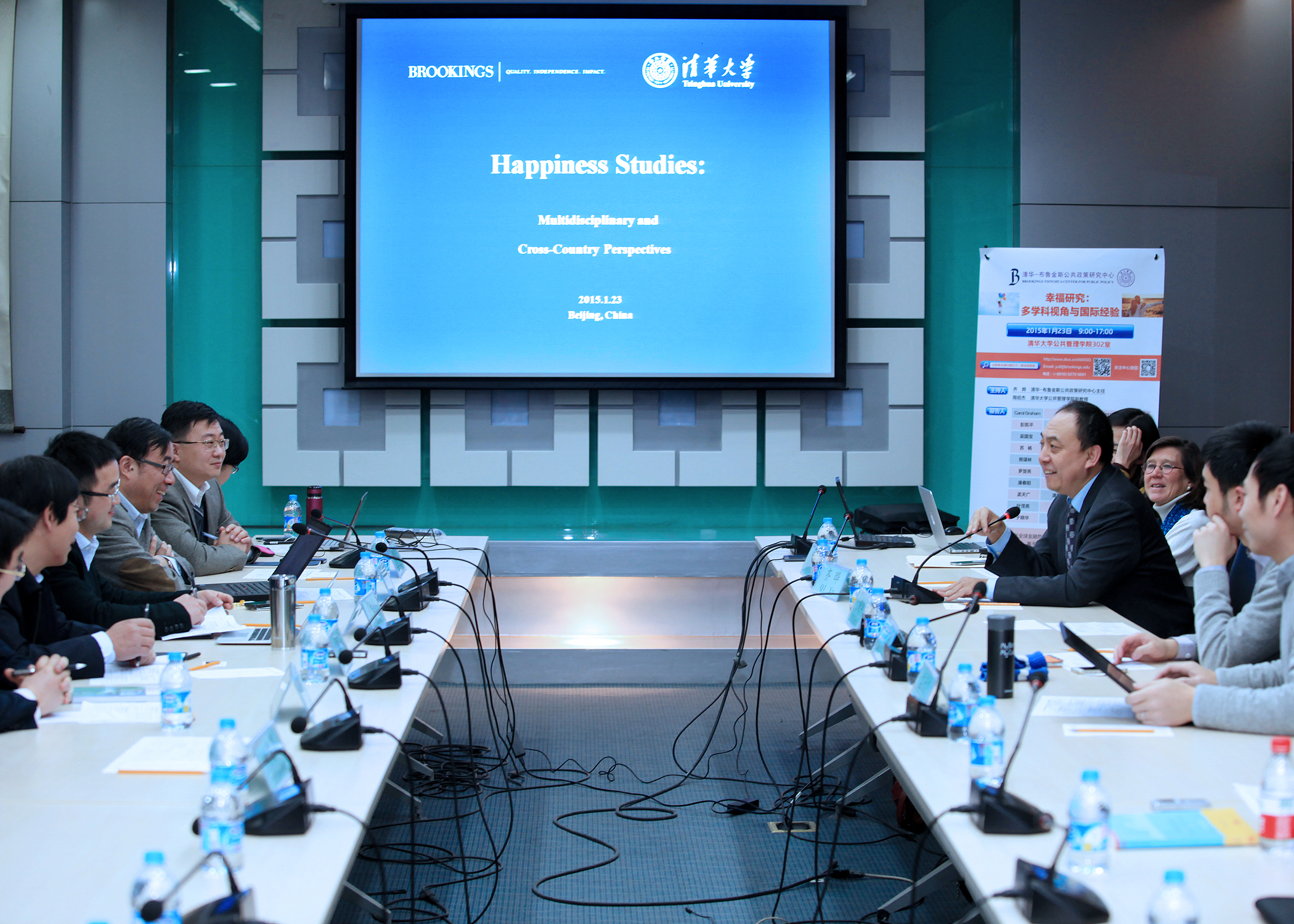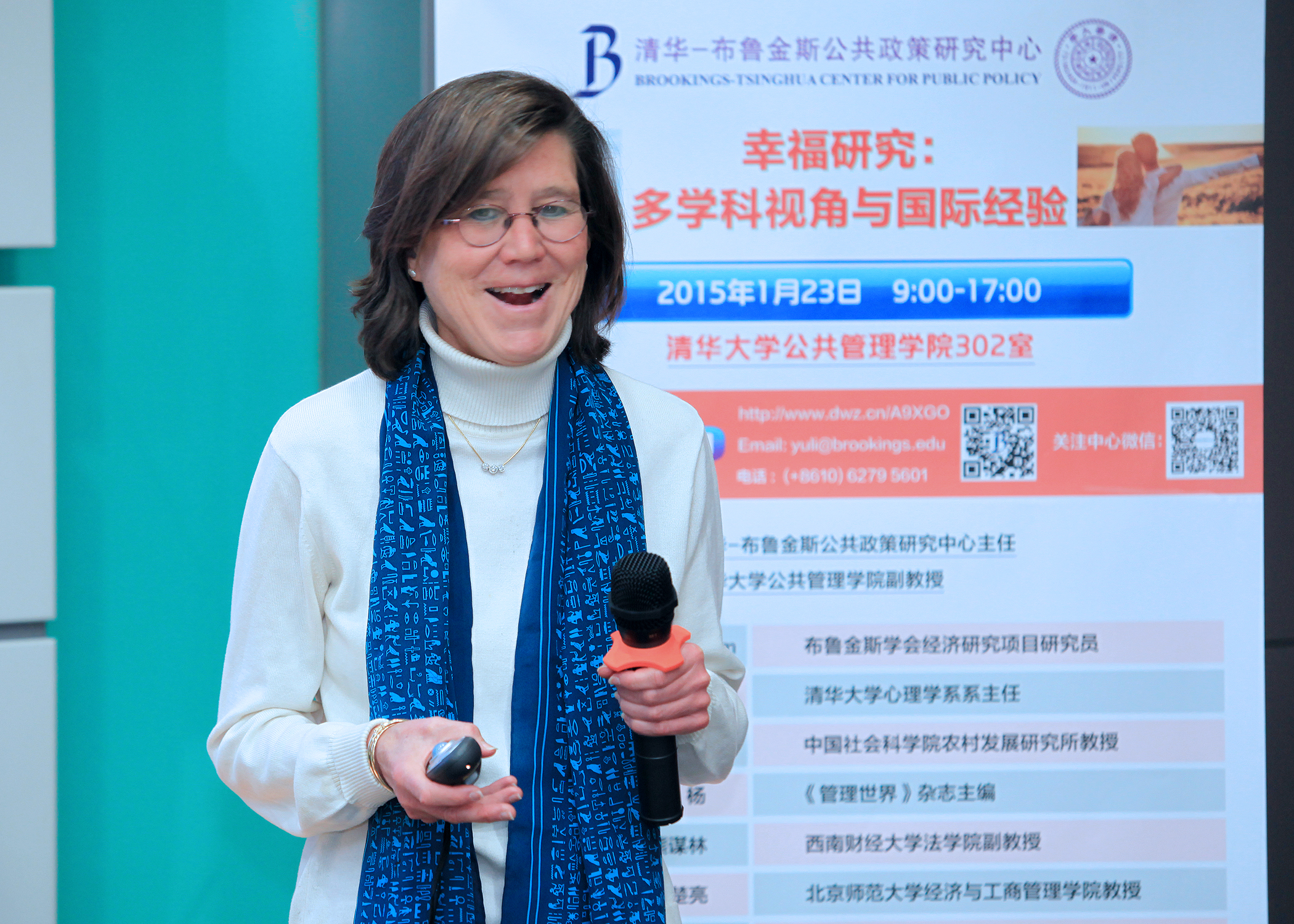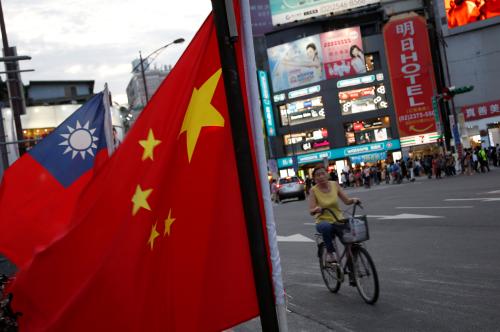2021
Content from the Brookings-Tsinghua Public Policy Center is now archived. Since October 1, 2020, Brookings has maintained a limited partnership with Tsinghua University School of Public Policy and Management that is intended to facilitate jointly organized dialogues, meetings, and/or events.
With the financial crisis in 2008 deepening its impact all over the world, the reconsideration of development has come to the center of the stage of social science. Instead of entirely relying on the gross domestic product measurement for development evaluation in tradition, policymakers, scholars and media begin to pay attention to happiness studies. Along with the increasing importance of global governance, national happiness becomes a new consensus to measure development internationally, which will surely put some weights on public policy making and global governance.
According to the standard provided by the World Bank, China has become an upper-middle income economy. How to avoid the “middle-income trap” is of great significance to China’s development. Chinese national happiness studies not only provide new perspectives to complete the existing framework of analyzing development mechanism, but also offer great values on policy making.
On January 23, the Brookings-Tsinghua Center hosted a public seminar featuring Brookings Senior Fellow Carol Graham and Chinese scholars of happiness studies. The seminar discussed happiness studies under an international context and its implications for China from interdisciplinary and transnational perspectives.


Photos by: Hou Xiaojun
Agenda
-
January 23
-
Introduction
-
Happiness Studies: A Micro Perspective
12:00 am - 4:00 am
ZSZhou Shaojie Associate Professor - School of Public Policy and Management, Tsinghua UniversityXMXiong Moulin Associate Professor - School of Law, Southwestern University of Finance and EconomicsLCLuo Chuliang Professor - Business School, Beijing Normal UniversityPCPan Chunyang Assistant Professor - School of business, East China University of Science and TechnologyMTMeng Tianguang Assistant Professor - Department of Political Science, Tsinghua UniversityYMYe Maoliang Assistant Professor - Hanqing Advanced Institute of Economics and Finance, Renmin University of ChinaYXYu Xiaohua Professor - Agricultural Economics in Developing and Transition Countries, University of Göttingen -
Development of Happiness Studies
8:00 pm - 11:00 pm
-


